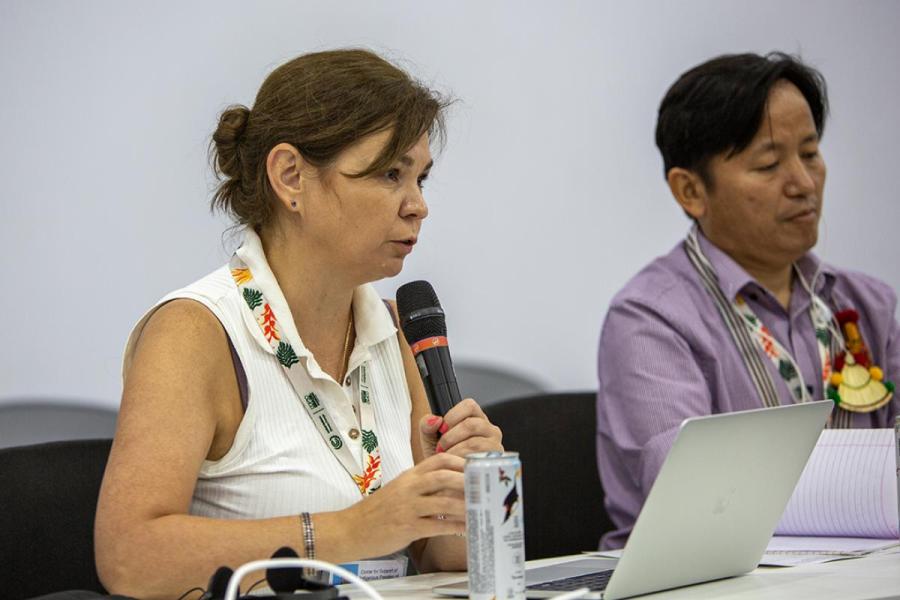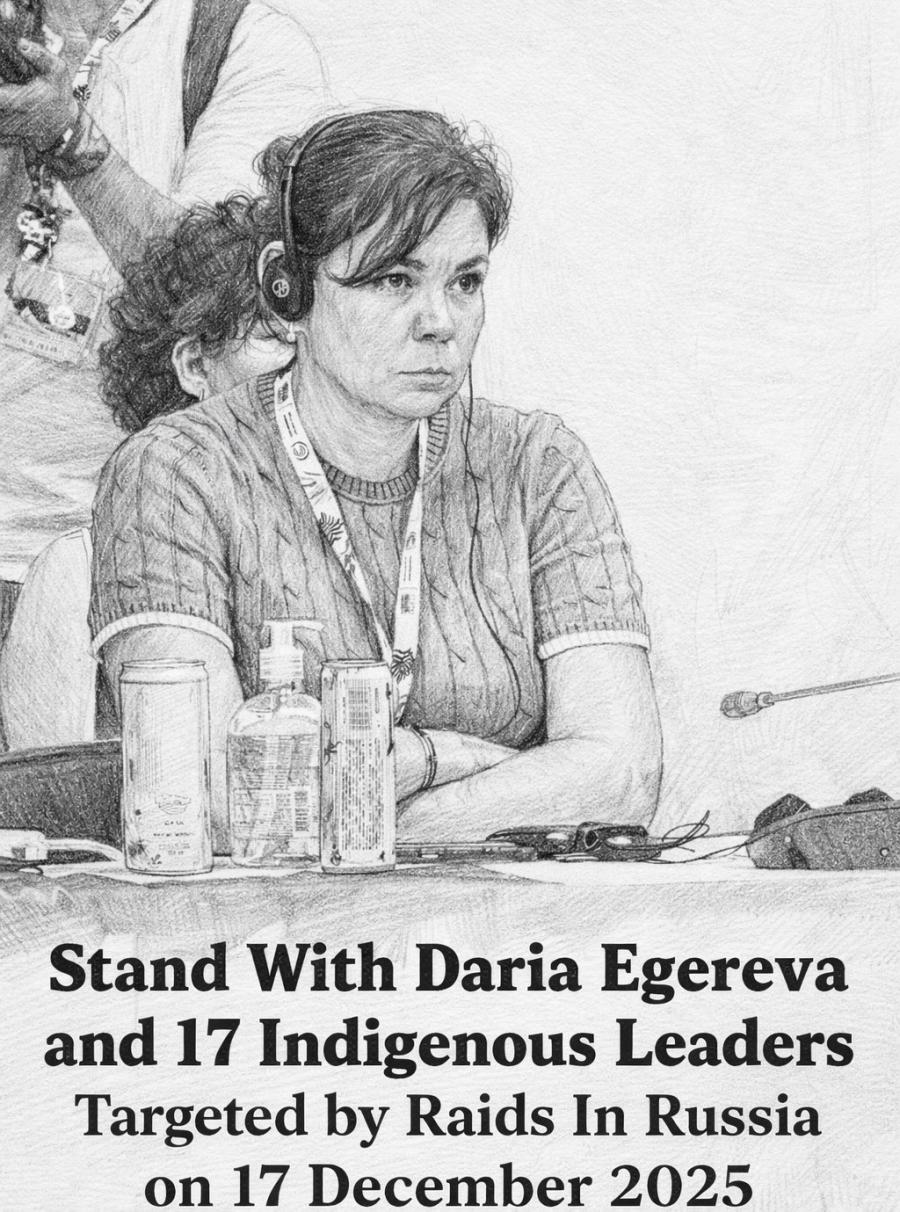"Itqat klhqzuknen..." begins the old woman. "Long ago it was." Her granddaughter leaves the room, the sounds and structure of the language no more familiar to her than they were to me when I first traveled to the swampy western shores of Russia's remote Kamchatka peninsula. The language is Itel'men, once spoken by perhaps 20,000 people across an area the size of California; it is now spoken natively by perhaps only 50 elderly people living in a handful of Kamchatka's remaining villages. In 30 years, the language may no longer be spoken at all.
Should the disappearance of the Itel'men language give cause for concern? If so, to whom? Even within the Itel'men communities, opinions are split; some are working toward the preservation and revival of the language, teaching it to children and interested adults; others see shift and assimilation as a natural process, the price of participation in the modern political economy.
Those who are involved in the language revival process face familiar hurdles: a lack of pedagogical materials, an ever-dwindling population of elders who can teach the language, little or no governmental support, and competition for existent resources. Admirably, language revivalists persist, teaching irregular classes to handfuls of children and to interested adults either in schools or in homes.
Yet there is one other hurdle, perhaps even more difficult to surmount: the weight of opinion that the teaching of Itel'men is at best a distraction from more immediate needs. The urgency of language revitalization pales in a community plagued by food and fuel shortages, where substance abuse by adults and children is widespread, and where food for the winter is a tangible concern. The granddaughter mentioned above is vaguely interested in her Itel'men heritage, but sees far more benefit in learning English. In a country where "amerikanskii" has become slang for "cool" or "modern," who's to blame her? Who, indeed, can suggest that she should not have the right, as an individual, to make decisions about the language she speaks, and, when the time comes, to pass it on to her children?
Presumably, considerations like these lead many -- within and outside of affected communities -- to argue that language shift is not a cause for true concern. Many suggest that language shift is the result of the free and conscious choice of individuals, and that if ancestral tongues fall by the wayside along the path of progress, it is because individuals have chosen to give them up, valuing more highly the gains of assimilation. Hunters who abandon dogsleds in favor of snowmobiles are conscious of the change they make, and While some speak fondly of the peacefulness of travel by sled, they hasten to point to the speed and efficiency of their snowmobiles and the positive changes these have made in their individual lives.
The "individual rights" argument seems to resonate more deeply as we move further away from affected communities. Surely it is paternalistic for linguists, anthropologists, and the like to dictate to people on matters of linguistic and cultural practices. For example, it is difficult to conceive of a morally justifiable argument for excluding indigenous people in Kamchatka (or in North America) from participation in the broader political economy, requiring them to live in a manner that we feel accurately reflects "their" traditions. Yet such arguments are made, all in the name of "saving" their cultures and languages. The argument against such rhetoric could only be that the language itself has a right to be spoken, and that the right of the language outweighs the individual rights of its speakers to control their destinies. To the extent that it can be formulated, this is a bizarre proposition.
Yet, considerations of individual rights and freedoms lead to the conclusion that language shift, endangerment, and death should worry the civil-minded among us. Language shift is not the problem; rather, it is a symptom of the much deeper injustice of significant imbalances in both the political economy and in access to the fruits of society's labor. As economist and Nobel Laureate Amartya Sen has discussed extensively in his work on equality and inequality, individual choices are not truly free. Choice always takes place in a context, and that context limits the range of possible outcomes. Language shift is a clear and predictable response to contexts of language contact in which one linguistically identified group is systematically disadvantaged.
It is precisely because the Itel'men people (and so many others around the world) have been denied access to the broader political economy that they are forced to make the apparent "choice." Moreover, the fact that the outcome is shift (assimilation) rather than bilingualism in one form or another provides a strong argument that the forces at work go beyond practical considerations. It is one thing to recognize as a practical matter that Russian, in the current context, is useful for participation in the broader political economy and for reaping the benefits that come with such participation. It is quite another to conclude that the only choice is between assimilation and the continuity of tradition. Language and cultural contact need not be a zero-sum equation. Just as learning a new language does not entail forgetting an old one, bilingualism is a clear and cogent response to a context in which cultures are in contact. Indeed, bi- or multi-lingualism has been the norm throughout much of the speaking world's history. Why should it be necessary to learn Russian (or English) instead of Itel'men, rather than in addition to it, in order to avoid exclusion? The answer: it is not language per se, but group membership and identification -- of which language (or accent, belying a particular native language) is merely a sign -- that is the root of the exclusion.
Language is one of many factors by which an individual may be identified (or may identify herself) as belonging to a group. Assimilation is one consequence of the perception that membership in one group is in some way more optimal than membership in another. As long as it remains true that the other consequence is exclusion, the choice made by large segments of a minority population to give up their native tongue is coerced. And as long as minority populations are systematically coerced to make such decisions (largely on the basis of their membership in a linguistically identified group), individual freedoms are also systematically lacking. The magnitude of the situation speaks to the magnitude of societal inequalities the world over; language shift and diversity are barometers for civil liberties.
Understanding that language shift is a symptom leads us to the conclusion that long term solutions must address underlying causes. In the short term, means of language revitalization and reclamation that focus on language itself (recordings, dictionaries, etc.) are undeniably critical. But since the causes lie in injustices and imbalances of power, it is only in tandem with social and political action that such measures can hope to succeed in the long term. (This is not to deny the important role that traditional language revival mechanisms play by contributing, in many cases, to counteracting pressures for assimilation, and by addressing long-term goals.)
There is every reason to believe that diversity, be it cultural, linguistic, or intellectual, is in some sense healthy in the world, a view codified in now frequently-cited notions of linguistic ecosystems. From the viewpoint presented above, though, it appears that diversity is not the cause of a just society, but rather the result of it. Rather than working to enforce diversity for its own sake (with questionable implications for the rights of individuals), I advocate the position sketched here: a defense of the rights and freedoms of individuals -- seeing diversity (linguistic, cultural, and intellectual) as the natural end result of such an endeavor.
Article copyright Cultural Survival, Inc.



